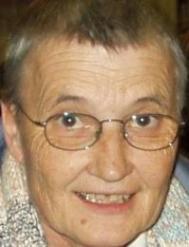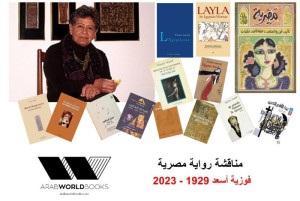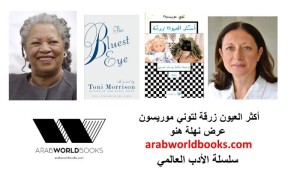Book: Something Wrong by Adeeb Kamal- Adeen
Review by Anne-Marie Smith*
Adeeb Kamal Ad-Deen is an Australian poet of Iraqi origin who graduated in Economics and in English Literature at the University of Baghdad. A published Arabic poet, a journalist and editor, he became an Australian citizen in 2005 and started to compose some of his poetry in English as well as in Arabic. He has translated work from a range of world literatures into Arabic.
Adeeb Kamal Ad-Deen is gaining a reputation as one of Australian’s finest poets, with work represented in high profile Australian literary journals like Southerly and Meanjin, and in anthologies such as The Best Australian Poems (Black Inc Press, 2007). In 2009 Adeeb published his first English poetry collection Fatherhood (Seaview Press). A prolific writer since 1976 Adeeb has published fourteen poetry books in Arabic, English and Italian.
Something Wrong is the second English language volume of poetry by Adeeb Kamal Ad-Deen. Its forty poems include poetry which he wrote in Sydney and Adelaide. Adeeb’s poetry centres on loneliness, death and love. This new collection continues to explore the human condition. The interest of Adeeb in these universals conveys his keen search for knowledge. He engages us through his all-inclusive imagery and his use of trim, simple and sometimes elliptic phrases.
We see some thematic similarity with his earlier poetry’s stylistic use of a haunting timbre and of repetition from one stanza to the next. The repeated phrases also give the effect of a refrain.
I did not find the giant bird,
I did not find even the name of the bird,
I did not find the audience,
I did not find even that boy who is me.
Boy
This echoing effect conveys the style of chant to some of Adeeb Kamal Ad-Deen’s poems, as also shown in a poem from ‘Fatherhood’.
Tonight, what will I say to my children?
Tonight, what will I say to my heart?
Tonight, what will I say to my letter
And my dot? Theft
Our thought pattern eases over innovative and original concepts through some ingenious personification devices. After the first poem where the song of a magician leads to a dance by corpses to whom he eventually apologises, it does not take long for an inner voice called perhaps by metonymy ‘There Is Something Wrong’- to warn us of the challenges of our existence!
Semantic differences can be found in some of the imagery. Adeeb’s new poems may contain less ambiguity (‘Dyad’ and several pieces whose titles start with ‘An Attempt to…’ in Fatherhood). This may result in a deeper representation of the human condition, yet one could say that darkness, fear, passion and isolation remain close companions in any of his work.
This poet shows that the universal concepts which affect all of us human beings are not strictly culturally specific. We recognise the generic emotional experiences he discusses. Images can exist in diverse dimensions, and refer to varying genders and universes.
The sun wants to spend the night
In the club of planets and stars
But he is afraid to be delayed
And will not shine tomorrow on his schedule. Wishes
We join in with his protagonist and experience the high and lows of day-to-day living, but we always do so in a timeless line and from a worldwide perspective. Deceptively simple words move us around the complex sensations of life that human beings experience.
You resemble the sea.
No doubt about it!
But what kind of meaning disappears behind that sea?
Behind that wonderful blueness which starts
So as not to end
Or to end so that it starts again. He is Blue and you are
Blue
The questioning nature of Adeeb’s poetry is not in doubt either:
Which window? ...
This question that has been torturing him
For years and years
Since he returned from the sea! Question
Adeeb uses questioning as a literary device. Saint Exupėry, for example, strews The Little Prince with guileless queries. These delve for meaning while refuting the face value of statements. They also may take on a naive quality that Adeeb attributes to part of the human condition.
You who are simple like me,
Lost like me
And naive like me, Noah came and went
The issues of belonging and exile and their effects come to the fore. These poems raise readers’ awareness of anomie. They also highlight the need for a sense of identity wherever we are or wish to be.
In the faraway country,
I am sitting in a dark, isolated café
To recall your image that I buried
With my hands
Forty years ago. Apology
With Adeeb we research a range of emotions, death and betrayal. We follow the poet in his life or his dream. Few of us have ever felt so intense that they have had to apologise to corpses.
Hundreds of corpses surrounded him
Dancing the dance of great torment.
The musician became confused, horrified …
Apologizing deeply to the corpses. Magician
Some memories can appear suddenly. Have you ever felt stuck or numb in a lost environment?
My God,
I am the only one who is still living,
The only one who lives to witness what had happened.
I mean the living one who writes these letters
With his damn confusing pen
Stopping every minute
To make sure
That his fingers are still able to write! Why?
We also come to appreciate the beauty or harmony of a sign on a page, the shape of some lettering or the sound of a word.
When the letter sits opposite you,
Do not speak before he starts speaking …
When he sings
You must stand up to dance.
So the letter will be your flute
And your white bird soaring in the blue sky. Will of the letter
Adeeb’s work has been critiqued internationally and his poetry is the subject of numerous studies. Comments revolve on his interpretation of the ‘Letter’, the Arabic hand and printed script and its significance in Arabic writing. For the first time we read about it in English. He explains in The letter tree how combined letters and dots can affect sound and form, making some letters “j”(ج), sound and look harsher than “n”(ن).
J*…full of enigma…
N*…full of love's groan’…
And a dot called the Sufi's dot. The letter tree
In the same poem, when Adeeb uses a word like ‘the tree’, we gradually gain an insight into the referent- the tree- and its reality, and discover that the tree is the personification of the very poet whose words you are reading.
When my head was rolling on the beach
Amid the exiled strangers' neighing,
A tree full of light and happiness emerged
From my blood scattered on the ground.
Could it be the letter tree? The letter tree
As we saw earlier, an abstract concept 'There is something wrong’ not only is personified but becomes a protagonist, an enemy or a fiendish friend- depending how you wish to read it.
There is something wrong in the bed, …
And in the surprise waiting for the bed at the end. Something wrong
‘There is something wrong’ becomes a companion, no longer ‘a chip on the shoulder’, just a whole person whom we are fully aware of, alongside whom we can walk. Despite dark times, the hero’s emotions brim with optimism, albeit in another life, as in the last poem of the collection.
In my next life
I will read a lot of poems
Of the poets who were not born yet
Hoping I will get sources of life
Forever. Apology
Sealed in my mind are some of the lines of Interesting, Strange, Amazing! - an existentialist yet humorous poem, central to this poetry collection.
* God is a sun that speaks inside your heart?
- Yes.
* Strange! Interesting, Strange, Amazing!
A famed believer in emotional responses to problem solving, Saint Exupéry told his readers in Le Petit Prince ‘The eyes are blind. One must look with the heart’. When approaching Something Wrong, why not embrace this very vocal volume with the heart and, I would add, with the soul!
*Anne-Marie Smith left France (1968)and arrived via Zambia and Papua New Guinea(PhD in Linguistics -UPNG)in Western Australia (1986) where she worked with Migrants and Indigenous Australians. Educator, community worker and prison education officer she has worked for Amnesty International. In Adelaide she joined the South Australian Writers' Centre, Adelaide PEN and the Multicultural Writers Association of Australia for whom she edited 'Culture is...Australian Stories across Cultures -an Anthology' (Wakefield Press, 2008). She has also published short stories. A member of the S A Editors' Society and a Varuna Alumni, Anne-Marie works on her life writings.




